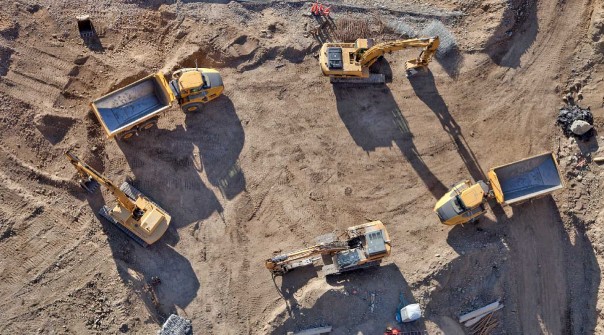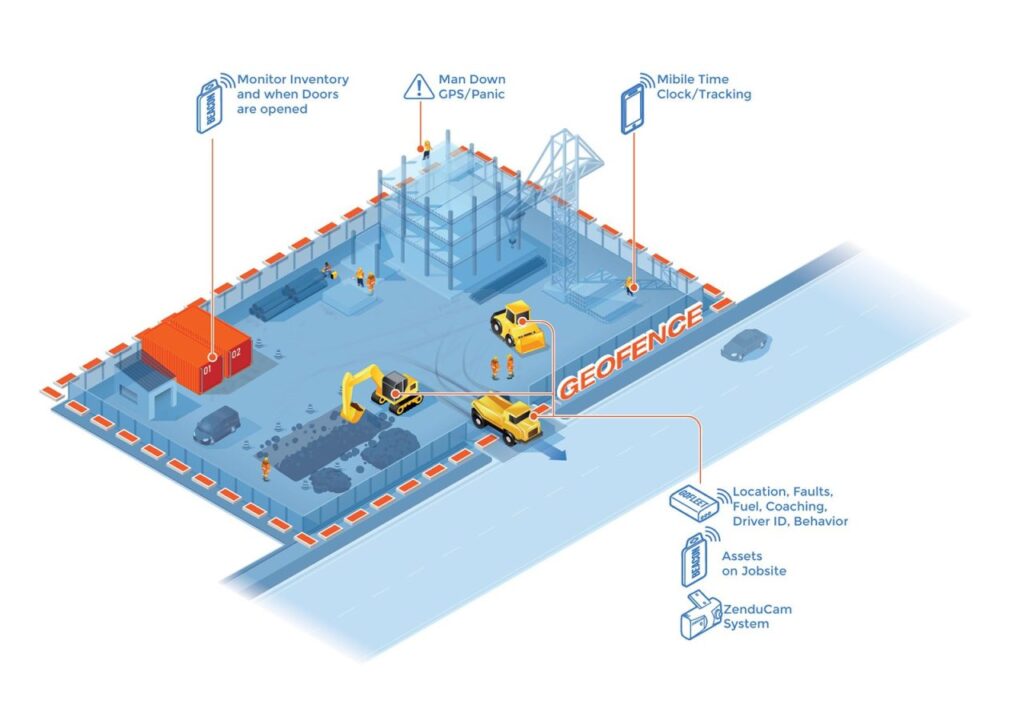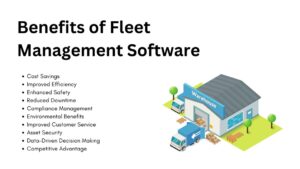Fleet management (FM) is crucial for the construction projects. It coordinates vehicles, equipment, and resources seamlessly. In the realm of construction, time is of the essence and a well-organized fleet is essential. Picture this: a construction site bustling with activity. All synchronized like a well-oiled machine – that’s the result of effective fleet management.
The success of a construction project depends on the coordination of all components. FM plays a crucial role in coordinating operations. It ensures a smooth transition that extends beyond the physical system. It is not enough to supervise vehicles; one must also optimize efficiency. We need to divide resources, and adhere to strict deadlines.
Fleet management excels in construction industry when it can transform disorder into order. It helps lower delays and are able to meet deadlines. As we further explore we will learn about the complexities of real-time monitoring. We will understand it’s profound influence on construction fleet management. It becomes clear that this is not a routine activity; rather, it serves to drive projects to efficiency.
We will examine the 7 ways in which real-time tracking changes construction fleet management (CFM). This advantage in technology will be revealed as we progress.

1. Enhanced Operational Efficiency
Construction fleet management improves with real-time tracking technology. It gives quick visibility into the location and status of equipment and vehicles. Transparency improves decision-making and communication, cutting down on delays and downtime. Businesses who used real-time tracking saw a 20% boost in total operational efficiency.
2. Optimized Resource Allocation
Through data-driven insights, FM contributes to efficient resource allocation. Construction companies may optimize their fleet by evaluating utilization patterns and equipment availability. This will help in significant cost savings. Implementing real-time tracking resulted in a 15% reduction in fuel expenditures. Also, a 25% reduction in maintenance charges from a renowned construction firm.
3. Improved Project Timelines
Effective FM has a direct impact on the duration of projects. Project managers can track progress, identify bottlenecks, and make educated decisions. This is all thanks to real-time tracking. A significant infrastructure project shows a 30% reduction in project schedules. This was after using a complete fleet management system.
4. Cost-Efficiency and Savings
Implementing fleet management strategies in construction results in financial gains. Resource optimization, fuel efficiency, and lower maintenance expenses all lead to long-term savings. Organizations that use fleet management solutions save 15% on project expenditures. According to our reports this improves the financial health of their initiatives.
5. Safety and Compliance
Through real-time monitoring, FM assures safety and compliance with industry rules. Telematics and IoT, for example, provide information about
- Driver behavior
- Vehicle maintenance requirements
- Adherence to safety regulations.
This eliminates accidents and also protects construction companies from legal consequences. We found that a strong FMS reduced safety occurrences by 40%.
6. Environmental Sustainability
Construction projects are often criticized for their environmental impact. We can mitigate this through practices enabled by fleet management technologies.
- Optimized routes
- Reduced idle times
- Fuel-efficient driving
This contributes to a smaller carbon footprint. The adoption of electric vehicles within fleets further amplifies environmental sustainability efforts.
7. Technology Integration and Innovation
The role of technology in very important in modern FM. Innovations like GPS tracking, predictive maintenance, and autonomous vehicles are reshaping the industry. A forward-thinking approach to technology integration ensures construction companies stay competitive and future-ready.
To sum up, real-time tracking changes the way construction fleet management.

The Future of Construction Fleet Management
As construction projects evolve, so does the landscape of fleet management. The future promises even more sophisticated technologies, greater connectivity, and enhanced data analytics. Embracing these advancements will be crucial for staying ahead in a competitive industry.
Businesses should look into and use real-time tracking options. They should use construction fleet management to reach its full potential. Some things include purchasing reliable tracking systems. You must give employees training, and add FM into current processes. This is how construction companies can set themselves up for success.
Fleet management is not just an option; it’s a strategic must. For anyone who wants to build a building business this will make them ready for the future. Are you ready change the way you manage your fleet? Let’s us help you get your business future ready.






Leave a Reply